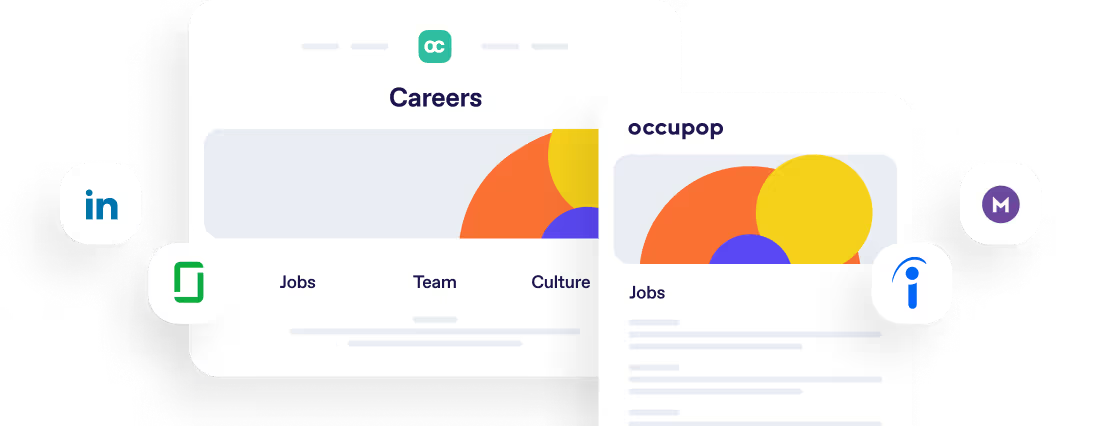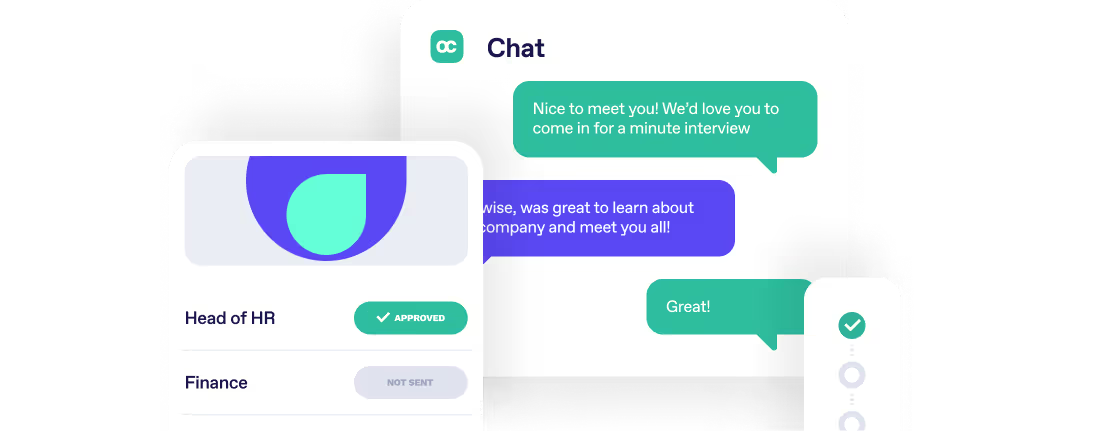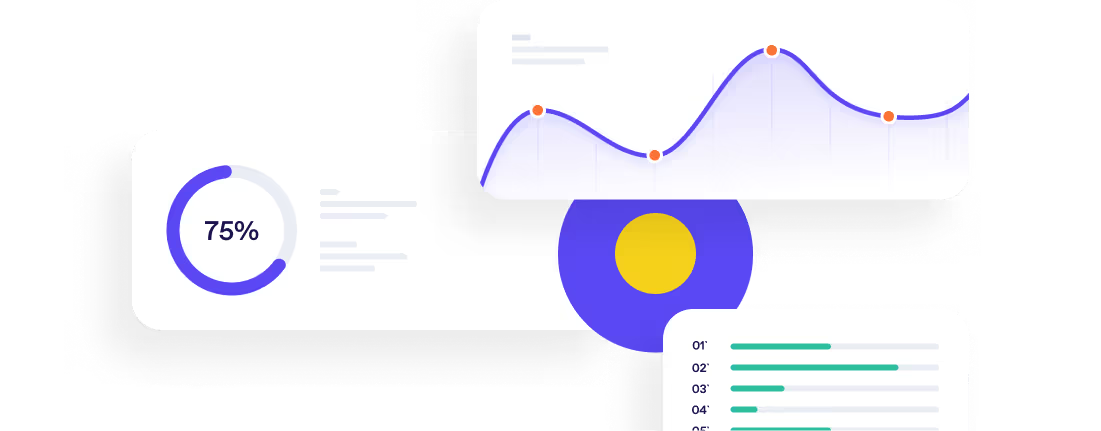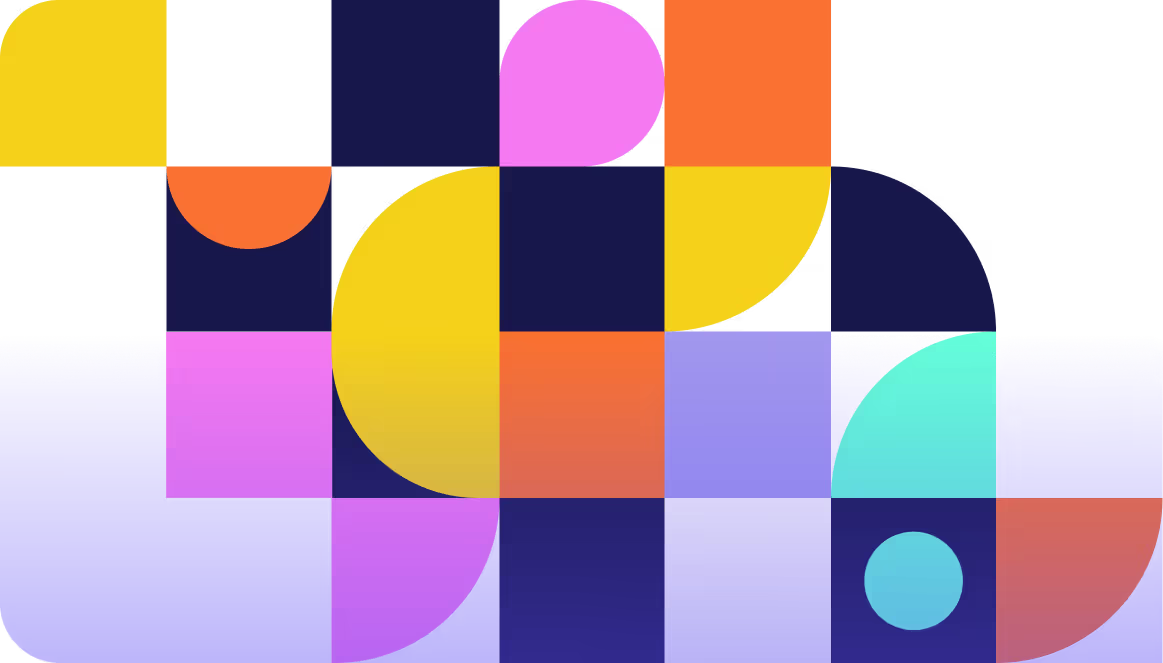Revolutionise Interviews With AI Innovation



The Impact of AI on the Interview Process
The recruitment process is undergoing a dramatic transformation, largely driven by advancements in artificial intelligence (AI). AI is revolutionising how interviews are conducted, making processes more efficient and decisions more informed. This shift not only enhances the accuracy of hiring decisions but also significantly improves the candidate experience. From automating scheduling to enhancing candidate screening and even conducting interactive interviews with tools such as ChatGPT, AI is setting a new standard in recruitment.
This article delves into the various ways AI is being integrated into interview workflows across many companies, offering a comprehensive guide on how to harness these technologies to streamline hiring processes and secure the best talent.

Automating Scheduling
Artificial intelligence (AI) is transforming the way businesses schedule interviews, allowing for seamless coordination of calendars and optimal timing. AI-driven tools can automatically suggest suitable times for both interviewers and candidates, reducing the administrative burden and focusing on finding the best match for the position. Learn more about how AI and automation are being used in recruitment.
Enhancing Candidate Screening
AI technologies enhance the initial screening process by analysing resumes and application materials with a level of precision that surpasses human capabilities. By leveraging natural language processing, AI can identify key skills and experiences that align with job requirements, ensuring only the most suitable candidates move forward. Discover more about the benefits of AI in recruiting.
Improving Decisions and Reducing Bias
AI can help mitigate unconscious bias by providing a consistent, objective analysis of each candidate. This technology supports decision-making processes that are based not on subjective impressions but on data-driven insights, which can help enhance the diversity and inclusivity of the workplace.
insert-cta
How do AI Interviews Work?
AI-Powered Tools
In the realm of AI interviews, various tools such as AI-driven chatbots, video interviewing platforms, and advanced analytics come into play. These tools facilitate a dynamic interaction with candidates through natural language processing and can analyse non-verbal cues to provide a deeper understanding of the candidate's suitability.
AI Questions and Techniques
AI can generate specific, relevant questions based on the role's requirements and the candidate's past experiences, ensuring that the interview process is highly personalised yet efficient. Techniques such as adaptive questioning can dynamically tailor the interview based on the candidate's responses, offering a unique and comprehensive evaluation process.

Using ChatGPT for Interviews
AI is not just transforming traditional aspects of interviews but is also introducing entirely new capabilities through tools like ChatGPT. ChatGPT can be utilised to simulate conversational interviews where it asks questions tailored to the candidates' resumes and previous experiences, making the interview process more interactive and insightful.
For those interested in integrating ChatGPT into their interview workflows, Occupop has compiled a comprehensive database of ChatGPT prompts specifically designed for recruitment purposes. These prompts help in crafting questions that can evaluate a candidate's technical skills, problem-solving abilities, and cultural fit. To explore these resources and enhance your interview process with ChatGPT, visit our guide to ChatGPT Prompts for Recruitment.
Integrating AI into Interview Workflow
Pre-screening and Initial Evaluation
The integration of AI begins with pre-screening, where AI systems evaluate applications to determine which candidates meet the basic qualifications before proceeding to more in-depth evaluations. This step ensures that the interview process is reserved for candidates who are genuinely viable.
Live Interview and Assessment
During live interviews, AI tools can assist interviewers by providing real-time data and insights about the candidate. This can include behavioural analysis and predictive analytics to assess future job performance, thereby supporting a more informed hiring decision.
Post-Interview Analysis and Feedback
After interviews, AI can analyse the discussions to offer insights into the candidate's responses and suggest areas for improvement in the interview process. This feedback can be crucial for refining interview techniques and improving the selection process over time.

Considerations for Adopting AI in Interviews
Ethical and Legal Concerns
It's crucial to consider the ethical implications of using AI in hiring, including privacy concerns and the potential for algorithmic bias. Employers must ensure that AI tools comply with legal standards to protect candidate data and prevent discriminatory practices.
Ensuring Fairness
AI must be continuously monitored and updated to ensure it operates fairly. This includes regular audits to assess the accuracy and fairness of the algorithms used in the hiring process.
Candidate Experience and Trust
It's essential to maintain transparency with candidates about the use of AI in the interview process. Providing candidates with information about how AI is used and how it helps in making hiring decisions can help in building trust and enhancing the candidate experience.
insert-cta
Best Practices for Implementing AI in Interviews
Defining AI Interview Strategy
Companies should clearly define their objectives when integrating AI into their interview processes. This includes understanding what AI can and cannot do and aligning its use with the company’s overall recruitment strategy.
Selecting the Right AI Tools
Choosing the right AI tools is crucial for effective implementation. Companies should opt for solutions that integrate seamlessly with their existing HR systems and that are scalable, reliable, and secure.
Managing Change and Adoption
Introducing AI into an interview process requires careful change management. This involves training staff on the new technologies, setting clear expectations for their use, and ensuring all team members are on board with the changes.
By leveraging AI and tools like ChatGPT, companies can revolutionise their interview processes, making them more efficient, fair, and insightful.
insert-line
In summary, the integration of AI into interview processes marks a significant leap towards more efficient, unbiased, and effective recruitment strategies. By automating mundane tasks, enhancing the depth of candidate screening, and offering innovative interviewing solutions such as ChatGPT, AI not only saves valuable time but also helps in securing the best talent by focusing on objective data and insights.
As the recruitment landscape continues to evolve, staying ahead means adopting technologies that streamline operations and improve decision-making. For organisations looking to embrace these advancements, the journey towards revolutionising interviews with AI begins with a commitment to innovation and a willingness to adapt.
Summary Points
Simple. Beautiful.
Recruitment Software.
HR updates sent straight to your inbox
You might also like...


Manage your entire hiring process simply, from engagement to management, hiring and onboarding







Simple. Beautiful.
Recruitment Software.
Recruitment Software.






